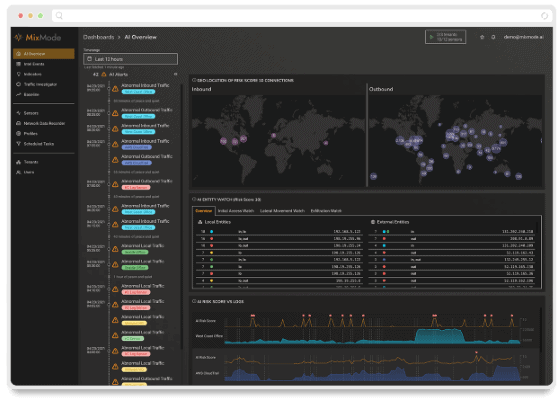MixMode Threat Research is a dedicated contributor to MixMode.ai’s blog, offering insights into the latest advancements and trends in cybersecurity. Their posts analyze emerging threats and deliver actionable intelligence for proactive digital defense.
A severe zero-day vulnerability in Microsoft Windows, tracked as CVE-2024-38112, has been actively exploited by threat actors for at least 18 months. This security flaw in the Windows MSHTML Platform allows remote code execution, potentially compromising numerous organizations worldwide. The extended period of undetected exploitation underscores the need for advanced threat detection and mitigation strategies.
Overview of CVE-2024-38112:
CVE-2024-38112 is a critical vulnerability in the Microsoft Windows MSHTML Platform. According to Microsoft’s security advisory:
- The vulnerability has a CVSS score of 8.8, indicating high severity.
- It affects multiple versions of Windows, including Windows 10, Windows 11, and Windows Server versions 2016 through 2022.
- The flaw allows an attacker to execute arbitrary code with the same privileges as the current user.
- Exploitation requires user interaction, typically through opening a specially crafted file or visiting a malicious webpage.
Overview of the Threat:
This vulnerability in the MSHTML Platform, also known as Trident, the rendering engine used by Internet Explorer and certain Windows components, presents a significant threat to enterprise security. Here’s why:
- Wide Attack Surface: The affected component is present in all supported Windows versions, creating a vast potential target base.
- User Privilege Escalation: If exploited on an account with administrative rights, an attacker could gain full control of the system.
- Stealthy Exploitation: The long period of undetected use suggests that traditional security measures have been inadequate in identifying these attacks.
- Potential for Widespread Compromise: Given the ubiquity of Windows in enterprise environments, successful exploitation could lead to large-scale data breaches or network infiltrations.
What Enterprise Organizations Should Do:
- Apply Patches Immediately: Install the latest security updates from Microsoft as soon as possible.
- Implement Least Privilege: Ensure users operate with minimal necessary permissions to limit the impact of potential exploits.
- Enhance Email and Web Filtering: Strengthen defenses against phishing and malicious downloads, common initial attack vectors.
- Conduct Threat Hunting: Perform thorough investigations to identify any signs of past exploitation.
- Update Security Policies: Review and revise security protocols to better address zero-day threats.
- Employ Advanced Threat Detection: Implement solutions capable of identifying novel attack patterns and behaviors.
How MixMode Helps Prevent These Attacks:
MixMode’s AI-driven cybersecurity platform offers robust protection against zero-day threats like CVE-2024-38112. Here’s how:
- Behavioral Analysis: MixMode’s advanced AI continuously analyzes network behavior, enabling it to detect anomalous activities associated with zero-day exploits, even without prior knowledge of the specific vulnerability.
- Real-time Threat Detection: The MixMode Platform’s real-time monitoring capabilities allow for rapid identification of potential exploit attempts, enabling swift response and minimizing potential damage.
- Contextual Intelligence: The MixMode Platform correlates data from multiple sources, providing a comprehensive view of the threat landscape and helping organizations understand the full scope of potential compromises.
- Automated Response: The platform can be configured to automatically initiate containment measures when suspicious activities are detected, reducing the window of opportunity for attackers.
- Continuous Learning: MixMode’s AI adapts to evolving threats, improving its ability to detect novel attack patterns over time.
- Zero-Day Vulnerability Protection: By focusing on behavioral anomalies rather than known signatures, The MixMode Platform can identify and flag potential zero-day exploits before they’re widely recognized.
The discovery of long-term exploitation of CVE-2024-38112 serves as a stark reminder of the sophisticated threats facing enterprise organizations. Traditional security measures often fall short in detecting and preventing such zero-day attacks.
As the threat landscape continues to evolve, proactive and adaptive security measures are crucial. MixMode’s AI-powered approach provides organizations with the tools needed to stay ahead of emerging threats, offering robust protection even against sophisticated zero-day exploits like CVE-2024-38112.
Other MixMode Articles You Might Like
Nation-States and Zero-days Cranking Up the Heat
MixMode: Revolutionizing Threat Detection and Prioritization in Cybersecurity
The Alert Avalanche: Why Prioritizing Security Alerts is a Matter of Survival
Empowering the Investigation Process with MixMode
Key Insights From Gartner Security & Risk Management Summit 2024

